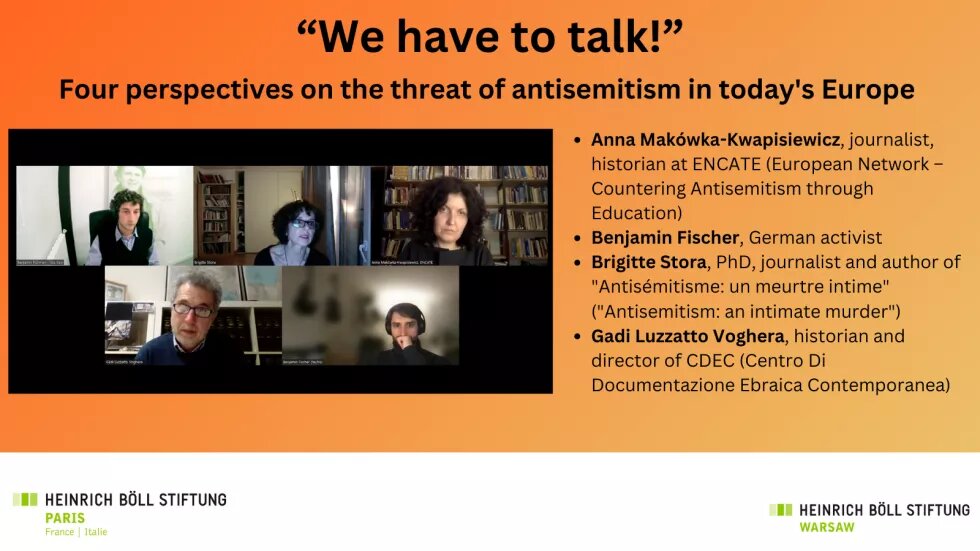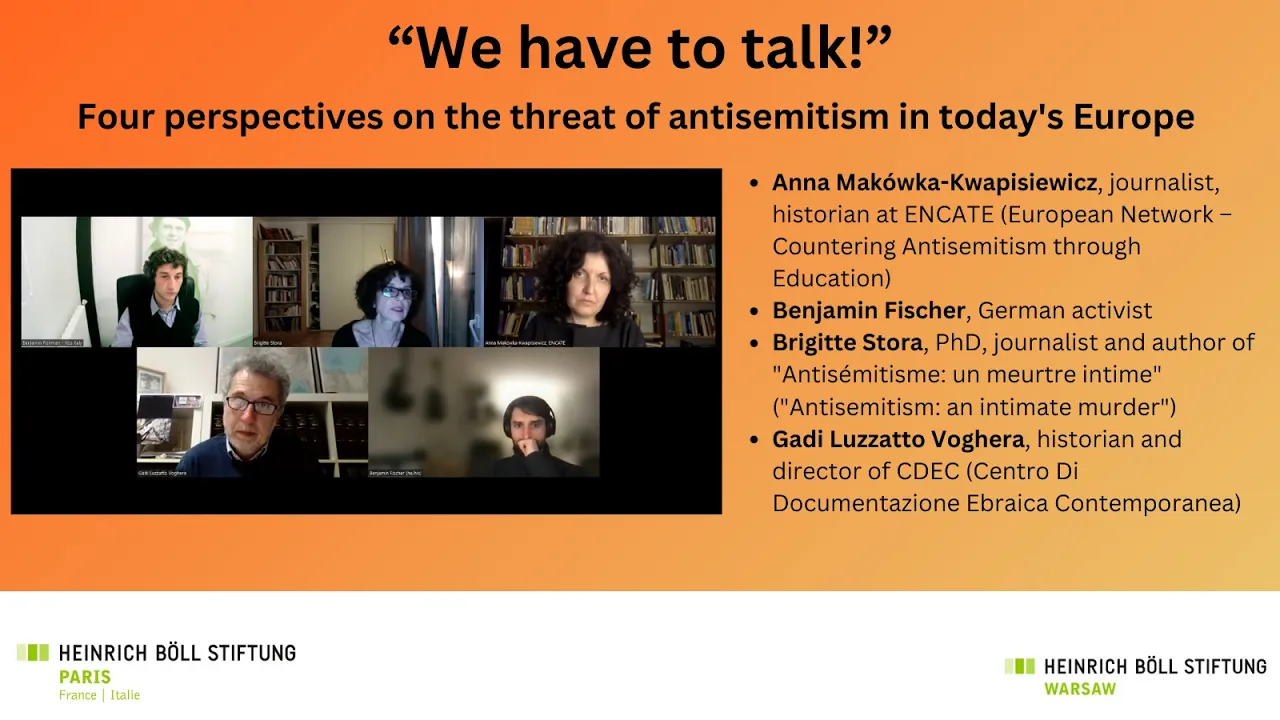The Paris office of the Heinrich Böll Stiftung launched on March 18th a series of webinars on the intertwine of racism and antisemitism in European societies. The first episode focused on the different forms antisemitism can manifest in our societies.

The Heinrich Böll Stiftung, as a green and German political foundation, is committed to combating all forms of racism, discrimination and hate, including antisemitism and islamophobia. These forms of hatred are sometimes manipulated to divide communities, by setting against marginalized minorities and perceived majorities. In certain instances, antisemitism is labeled as “imported”, attributing it predominantly to people with a migratory background while downplaying its presence across all sectors of society. By doing so, we lack a comprehensive understanding of an issue deeply ingrained in European societies.
Why talking about antisemitism today and why is it still relevant?
Undoubtedly, data show that lastly there has been a significant rise in antisemitism throughout Europe over the past few months, catalyzed by Hamas’ 7th October terrorist attacks. The significant number of civilian casualties resulting from Israel's response has further heightened tensions. Nonetheless, the current war in Gaza or any other external event cannot, in any way, provide an excuse to violent attacks that harm any member of our societies. All too often, Jews are held responsible for political and military developments in Israel, for whose they bear no responsibility whatsoever. A fact that indicates how antisemitism is still persistent in our societies.
Deadly attacks on Jewish schools and shops, desecration of cemeteries and tags on synagogues are certainly the most evident ways antisemitism manifests. But the vast majority of anti-Semitic episodes are less visible, as the most recent European Union Agency for Fundamental Rights survey reports: around 90% of European Jews feel antisemitism is growing in their country and almost 30% report incidents of harassment. What is more, they predominantly rate antisemitism as the most significant problem in their lives.
"We have to talk!" - Four perspectives on the threat of antisemitism in today's Europe - Heinrich-Böll-Stiftung France
 Watch on YouTube
Watch on YouTube
In the last few weeks, we have been witnessing uninterruptedly anti-Semitic incidents, ranging from the accusation of Jewish Holidays of being “satanic” to conspiracy theory references on public television and attacks targeting Jewish students on University Campuses. Those incidents are not random and they keep happening every day, thus explaining the urge to set up this webinar.
How serious is this phenomenon in 2024 and what can be done to address, counter and prevent it?
Those are a few questions we tried provide an answer with the precious help of our guests:
- Anna Makówka-Kwapisiewicz, journalist, historian at ENCATE (European Network – Countering Antisemitism through Education
- Benjamin Fischer, German activist
- Brigitte Stora, PhD, journalist and author of "Antisémitisme: un meurtre intime" ("Antisemitism: an intimate murder")
- Gadi Luzzatto Voghera, historian and director of CDEC (Center for Documentation on Contemporary Judaism)
Some references made during during the webinar:
- IHRA working definition of antisemitism
- The Jerusalem Declaration on Antisemitism
- The Nexus Document
- The list of anti-Semitic incidents in Germany after 1945
- Stories that move
- Hubert Aiwanger case
- EU Coordinator on combating antisemitism and fostering Jewish life
- EU Strategy on combating antisemitism and fostering Jewish life (2021 - 2030)
- RAAR - Réseau d'Actions contre l'Antisémitisme et tous les Racismes
- Collectif Golem
- Antisemitic dogwhistles
- KIgA e.V., the Kreuzberg initiative against anti-Semitism in Berlin
- Center for Monitoring, Analysis, and Strategy (CeMAS)
